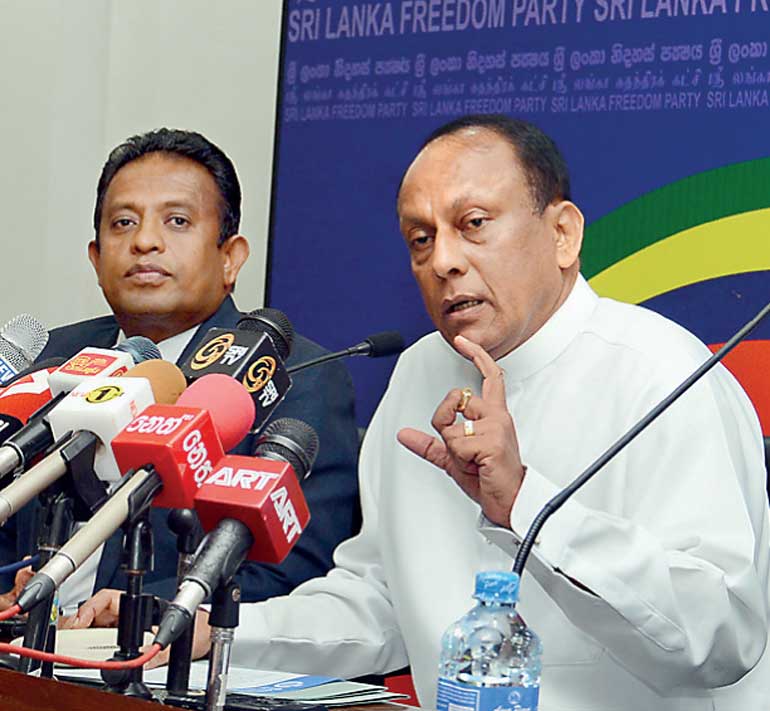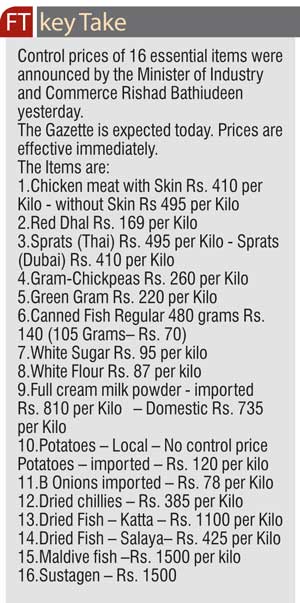Sunday Feb 15, 2026
Sunday Feb 15, 2026
Friday, 15 July 2016 00:00 - - {{hitsCtrl.values.hits}}
 By Chamodi Gunawardana
By Chamodi Gunawardana
and S.S. Selvanayagam
VAT legislation is unlikely to be put to a vote next Wednesday as the Government considers fresh revisions from the Sri Lanka  Freedom Party (SLFP) and awaits determination of fresh petitions before the Supreme Court, a top minister said yesterday.
Freedom Party (SLFP) and awaits determination of fresh petitions before the Supreme Court, a top minister said yesterday.
A special committee comprising SLFP parliamentarians expects to hand over a full detailed report over Value Added Tax (VAT) revision proposals to President Maithripala Sirisena, said State Finance Minister Lakshman Yapa Abeywardena.
Speaking at the weekly SLFP media briefing, Abeywardena noted that the committee members including Susil Premajayantha, Anura Priyadarshana Yapa, Mahinda Amaraweera and himself would present the report to the President on 17 July.
“The President and Prime Minister Ranil Wickremesinghe will make the final decision over VAT after considering our proposals,” he stated.
Abeywardena added that the SLFP had outlined four main points including minimising the VAT range, increasing direct taxes and reducing the prices of essential items. He also acknowledged that the Government would have to consider why certain goods had increased in price although they were exempted from VAT.
VAT legislation which was initially scheduled to be tabled in Parliament on 20 July will not be presented for a vote until the revisions are finalised, he said.
On Thursday an additional complaint was lodged at the Supreme Court challenging the VAT hike; it is unlikely the second reading of the VAT bill can be done before the court case is closed.
“Therefore we have enough time to make ideal decisions on VAT implementation,” he added.
Following the Supreme Court suspension of VAT on Monday, traders had returned to charging previous prices, a situation Abeywardena said would not change until Parliament passed VAT legislation.
“We expect to set up special authorities to regulate VAT charges and will take action against parties who breached the SC order.”